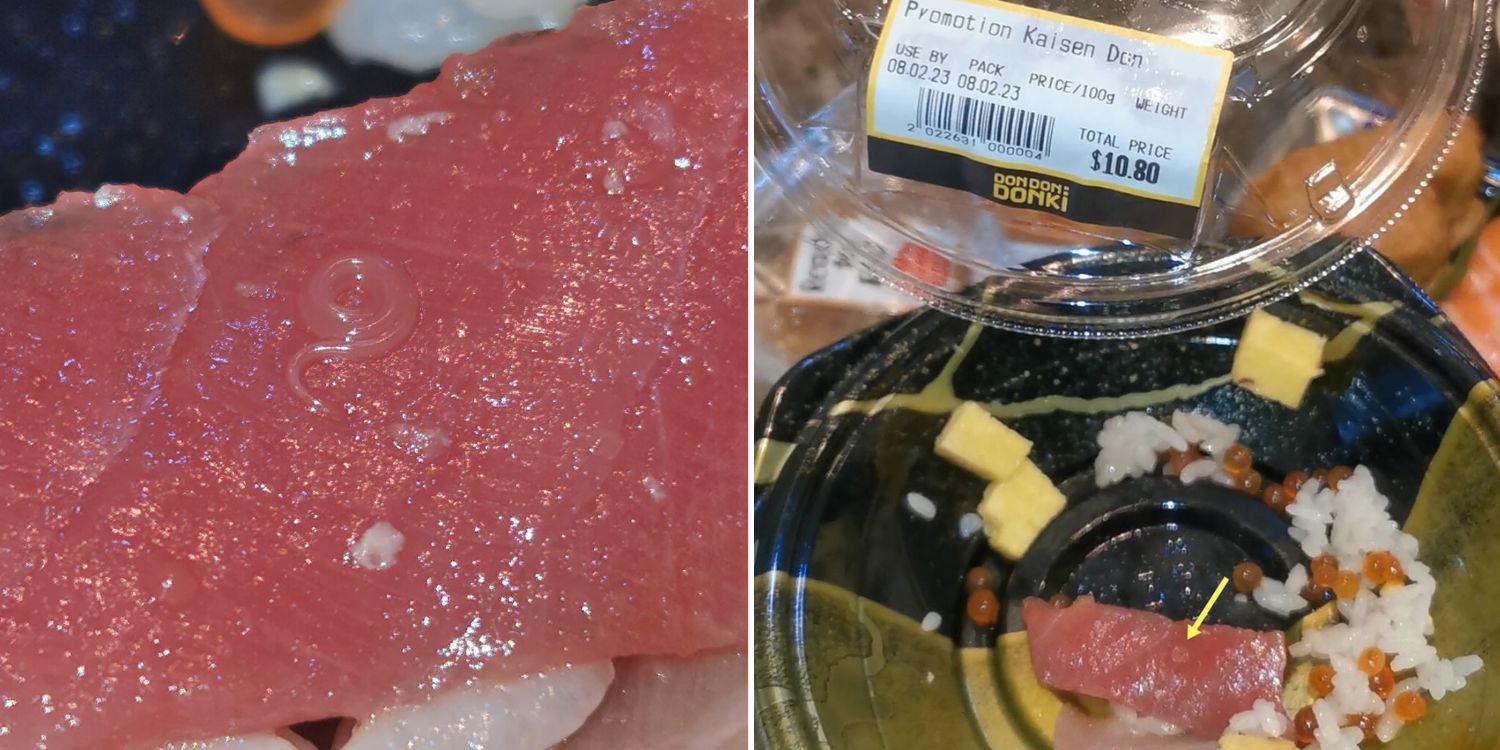Woman Finds Parasitic Worm Wriggling On Don Don Donki Sashimi
On Wednesday (8 Feb), Ms Jayice Tan and her husband bought some food at the Don Don Donki outlet in Tanjong Pagar and were shocked to find a worm wriggling in their sashimi.
To make matters worse, she said they were almost done with their meal by then.
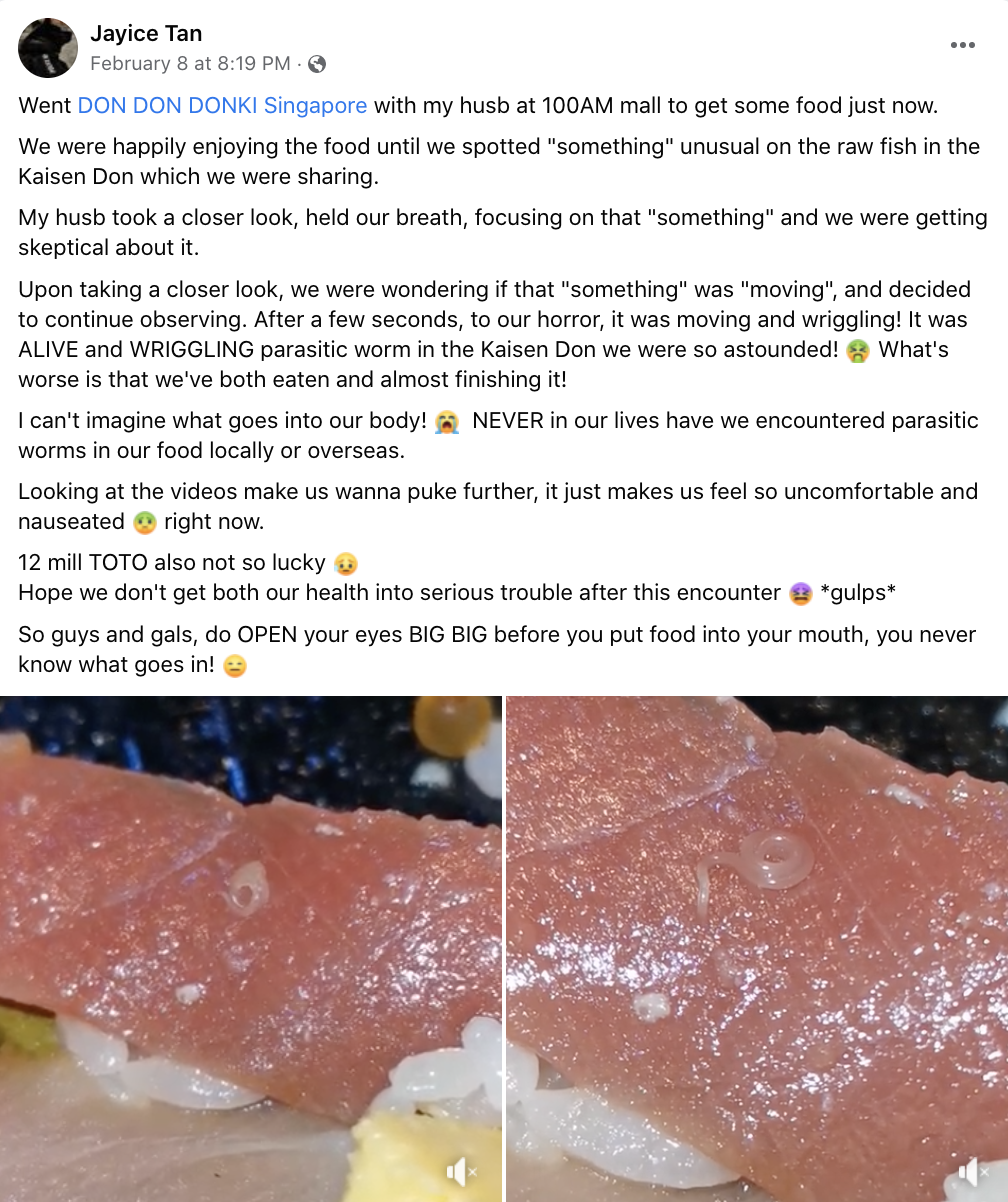
Source: Jayice Tan on Facebook
Her post later went viral, garnering over 1,400 shares.
Found worm on sashimi in kaisendon
According to the Facebook post, Ms Tan and her husband bought their food from the Don Don Donki outlet at 100AM mall on Wednesday (8 Feb).
They were “happily enjoying the food” when they spotted something unusual on the sashimi in the kaisendon they were sharing.
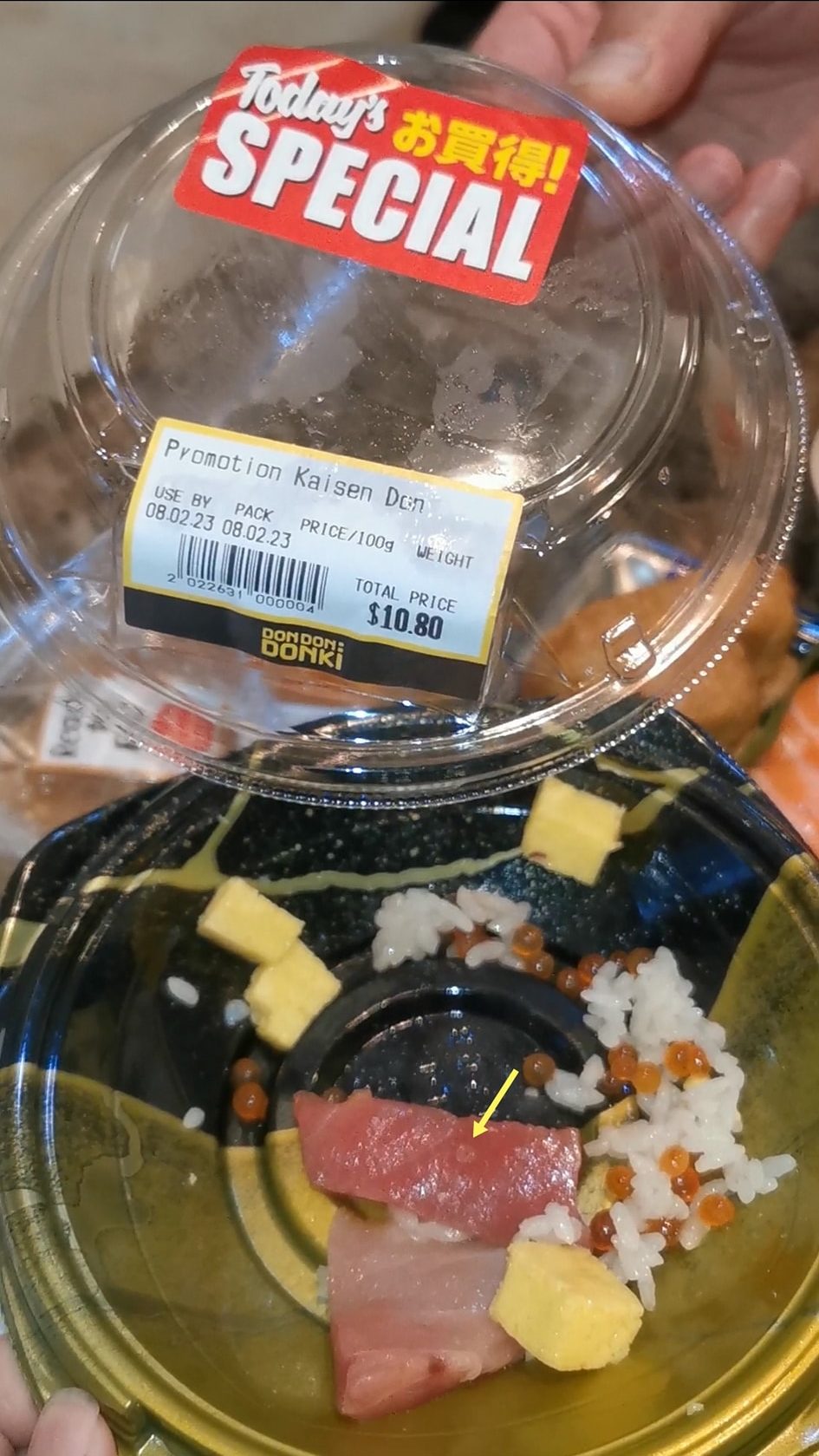
Source: Jayice Tan on Facebook
When they looked closer, they noticed a wriggling worm that was the same colour as the fish.
Ms Tan claimed it was a parasitic worm that was still alive.
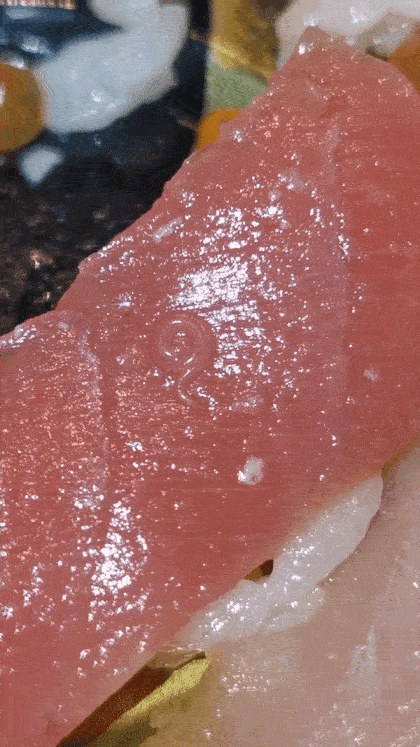
Source: Jayice Tan on Facebook
Was almost done with meal at the time
Ms Tan and her husband were horrified by the discovery, especially since they were almost at the end of their meal.
In the photos and videos shared, the bowl of kaisendon containing the worm was mostly finished off, but more packets of sashimi were in the background.
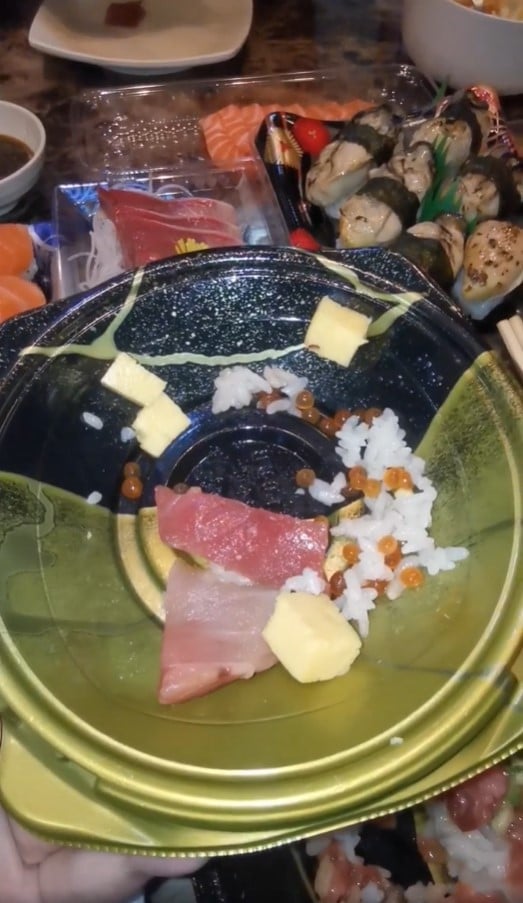
Source: Jayice Tan on Facebook
“I can’t imagine what goes into our body! NEVER in our lives have we encountered parasitic worms in our food locally or overseas,” she said.
She added that watching the videos again while writing the Facebook post made her feel uncomfortable and nauseous.
Speaking to MS News, Ms Tan said thankfully, they did not suffer from any symptoms since the incident.
She shared that Don Don Donki had reached out to her offering a refund. However, she rejected it as her intent was to create awareness.
She urged sashimi-lovers to exercise caution when eating their food, even if they are bought from established megastores.
SFA says joint responsibility can mitigate risks
In response to MS News’ queries, Singapore Food Agency (SFA) said ready-to-eat (RTE) raw fish is considered a high-risk food as it does not go through a cooking process.
Besides microbiological contamination, the consumption of such food carries a risk of contracting parasitic diseases.
But through a joint responsibility approach to food safety, such risks can be reduced.
SFA conducts more stringent checks on food that is more susceptible to food-borne diseases. These foods, including raw fish, are tested for various hazards, such as microbial pathogens and parasites.
Nonetheless, the industry must ensure the fish they farm, produce, and sell are safe for consumption.
Importers should source fish from suppliers that adopt proper cold chain management and hygienic handling practices.
Down the supply chain, retail food establishments should also properly segregate RTE raw fish from other foods intended for cooking.
For more information, consumers can refer to SFA’s website here.
Don Don Donki says checks are conducted
In messages seen by MS News, Don Don Donki sincerely apologised to Ms Tan for the discomfort caused by the incident.
The store said they had referred the case to the respective department and gave feedback to their supplier.
Don Don Donki told MS News that it is not uncommon to find parasites in wild-caught fresh fish and seafood. Nevertheless, Don Don Donki says they take all feedback seriously.
“At Don Don Donki, proper cold-chain management are maintained and visual checks are conducted throughout the handling process,” said a spokesperson.
This is done throughout the product sourcing, receiving, storage preparation, and display process.
While the store does its best to remove parasites, they may not be able to remove them entirely if they are deeply embedded in the flesh.
As an added precautionary measure, advisories are placed near product displays.
According to The Straits Times (ST), these advisories inform customers that anisakis might be present in wild-caught seafood such as mackerel, sardine, and squid.
Anisakis is a type of parasitic worm. If ingested, it can cause infection, with symptoms being abdominal pain, nausea, vomiting, and diarrhoea.
Those who find parasites in their food products should alert store staff.
Have news you must share? Get in touch with us via email at news@mustsharenews.com.
Featured image adapted from Jayice Tan on Facebook.
